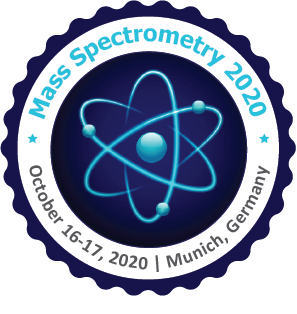Brigitte Simons
University/ SCIEX, Canada
Title: Quantitation of Lipids in High Throughput; the shotgun lipidomics profiling of NAFLD & steatohepatitis by ion mobility-MS data acquisition techniques
Biography
Biography: Brigitte Simons
Abstract
This presentation will address technologies that directly address clinical research experimentation of lipids in tissue extracts, keeping sampling and data processing throughput in mind. The human lipidome contains >100,000 different molecular species found within a small mass range; consequently, isobaric overlap makes unambiguous identification and quantitation of lipid species difficult. Herein, methods that utilize high sensitivity MS/MS techniques using a high sensitivity triple quadrupole linked LIT mass spectrometer to isolate lipid classes for identification of molecular composition and quantitation have been investigated. Furthermore, QqQ platforms can now be coupled to differential ion mobility (DMS) devices and have shown to resolve phospholipid sub-classes, triglycerides, and strikingly, the sphingomyelins (SM) were resolved from PC molecular species. The latter observation is significant considering these two classes cannot be resolved using triple quadrupole strategies alone, and their masses overlap significantly. Alterations in hepatic phospholipid composition, especially the amount of phosphatidylcholine (PC) and the ratio of PC to phosphatidylanolamine (PE) might contribute to the development nonalcoholic fatty liver disease (NAFLD). Aim was to compare PC/PE ratio in patients with NAFLD or chronic Hepatitis C (CHC) to healthy controls. This was a cross-sectional study. Liver samples were obtained from healthy controls (HC), patients with simple steatosis (SS), and steatohepatitis (NASH). Lipids were extracted from liver tissue and the total PC and PE lipid detected was quantified by tandem mass spectrometry using multiple precursor ion scanning [normalized by internal standards]. Hepatic PC/PE ratio was lower in all 3 patient groups, mainly due to a reduction in PC, which was significant in SS and NASH compared to controls. This study confirms previous animal data on PC/PE in NAFLD and represents a high throughput lipidomics platform’s utility to clinical outputs.

